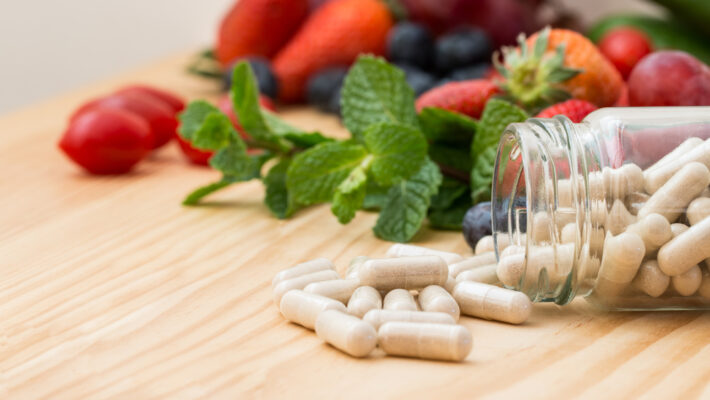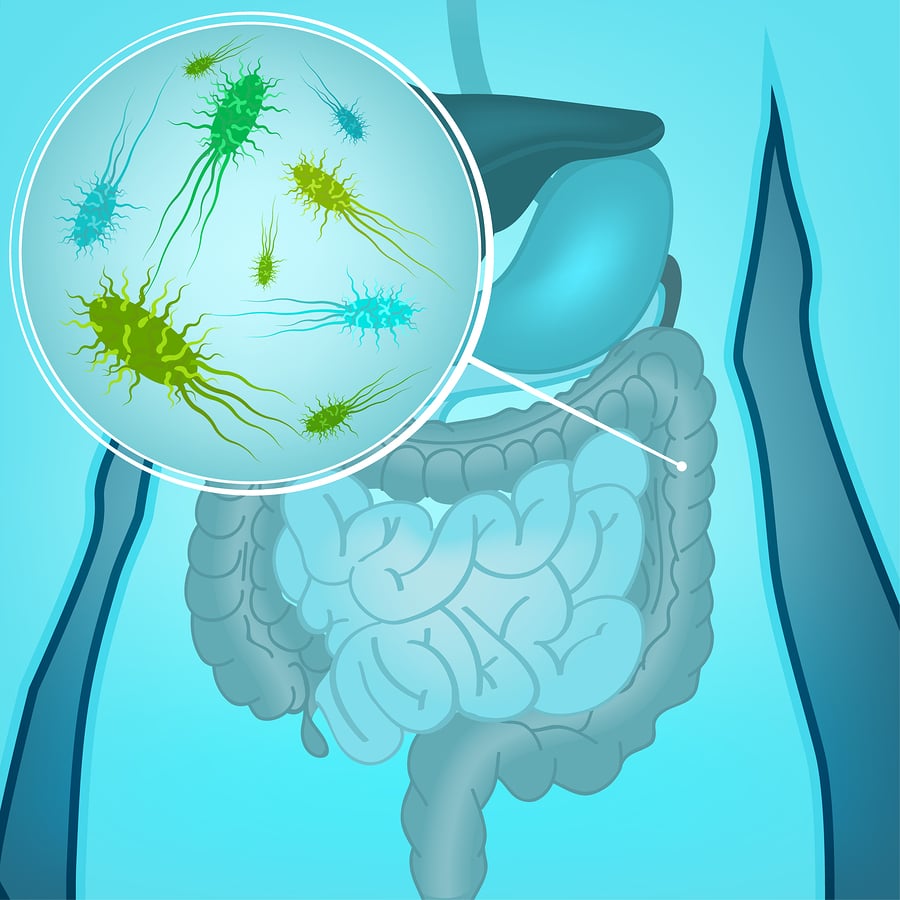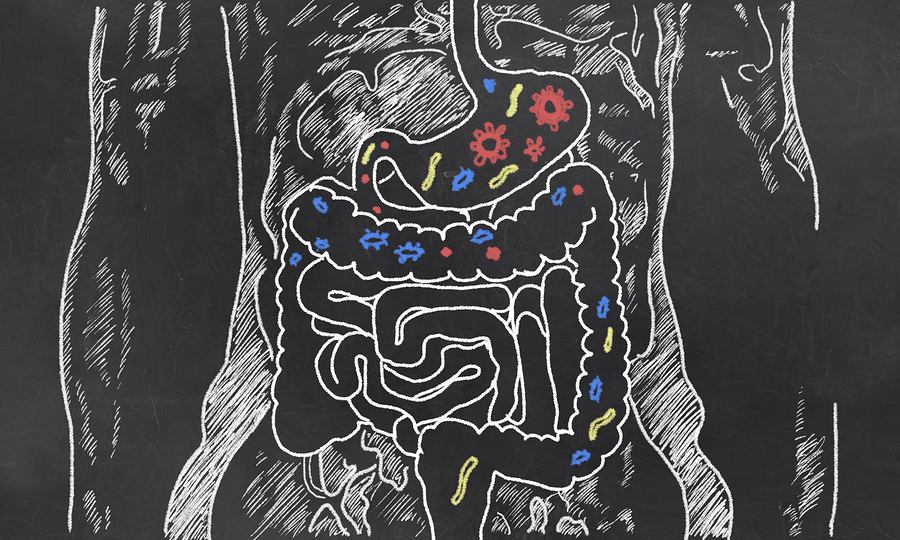
What Components Are Found in Colostrum?
Colostrum is the “first food of life,” and it helps promote newborn growth and development. All mammalian mothers produce colostrum late in pregnancy and in the first few days after the birth of their young. Colostrum contains a plethora of substances which ensure these newborns can get the nutrients they need to thrive. Animal babies will die if they do not receive colostrum. Human babies can survive without colostrum, but they are generally at a developmental disadvantage and are more susceptible to illnesses in comparison to those who receive colostrum.
Although many people link colostrum exclusively to newborn growth and development, it is important to note that bovine colostrum contains many essential nutrients that help people of any age shut down excessive intestinal permeability.
What Is Intestinal Permeability?
Excessive intestinal permeability, also referred to as “leaky gut,” results in larger-than-average spaces between the cells in the gut wall. The normally tight junctions between the cells loosen and become “less tight.” Of note, the gut wall is only ONE cell thick, so it’s easy to understand how the gut can become leaky. When these spaces form, they enable undigested food particles, chemicals, and other toxic materials to enter the bloodstream. As a result, these toxic materials can cause the immune system to react to these “foreign” substances.
The root cause of leaky gut remains unknown. Some researchers believe nutritional deficiencies, excess consumption of sugar, stress, and other dietary factors can lead to leaky gut.

There are many symptoms associated with intestinal permeability, and these symptoms include:
- Occasional Constipation
- Bloating
- Headaches
- Fatigue
- Skin rashes
- Fatigue
- Mood issues
Ultimately, colostrum helps repair a leaky gut, thanks in large part to its vast array of immune-modulating components and growth factors. Many colostrum components support the immune system. Colostrum’s growth factors restore “tightness” to the cellular junctions and help keep substances from crossing over into the bloodstream where they can wreak their havoc. And once a leaky gut is addressed, the body can work normally to repair tissue that may have been damaged by years or decades of leaky gut issues.
A Closer Look at Bovine Colostrum’s Key Components
Let’s take a look at some of the key components (bioactives) found in colostrum, as well as how these components support gut and immune health. These are often referred to as “immune factors.”
1. Immune-Modulating Components
Colostrum contains a variety of components that support immune function, such as:
- Cytokines: Colostrum contains interleukins, interferon, and lymphokines, chemicals that are involved in intercellular communication, regulation and intensity of immune response. Cytokines help increase T-cell activity and drive production of immunoglobulins which help support a healthy immune system.
- Glycoproteins: Glycoproteins refer to proteins with sugar attached to them. They help safeguard the immune and growth factors in colostrum against destruction by the digestive juices in the stomach and intestinal tract.
- Immunoglobulins: Colostrum contains at least 18% immunoglobulins which help support the immune system.
- Lactalbumin: Commonly referred to as “whey protein,” lactalbumin is found in mammalian milk. Lactalbumin helps promote a healthy immune response.
- Lactoferrin: Lactoferrin acts as an iron-binding protein and helps support the immune system maintain balance.
- Lysozyme: Lysozyme is an enzyme that helps protect the body.
- Colostrum Polypeptides (proline-rich polypeptides, or PRPs): Also known as “colostrinin,” these signaling molecules help promote a balanced immune system. They help regulate the thymus gland (the body’s central command for the immune system).
Colostrum’s GI health and immune factors have been shown to help people overcome the effects of a leaky gut. They also help promote the re-colonization of the bowel by friendly bacteria to assist in food digestion, eliminate waste, balance the microbiome, and manufacture B vitamins.
Growth Factors in Bovine Colostrum
Studies indicate that the growth factors in bovine colostrum are virtually identical to those found in human colostrum. Bovine colostrum’s growth factors have been shown to support normal growth, as well as promote the regenerate and accelerate the repair of aged or injured muscle, skin collagen, bone, cartilage, and nerve tissues.

Growth Factors in Bovine Colostrum
The growth factors in bovine colostrum include:
- Epithelial Growth Factor (EGF): EGF plays a role in protecting skin by stimulating cellular repair and replication. This applies to the outer skin and the inner lining of the gastrointestinal tract.
- Insulin-Like Growth Factors (IGF-I and IGF-II): IGF-I and IGF-II are the most prominent growth factors in colostrum and affect how the body uses fat, protein, and sugar for fuel. IGF-I has been shown to promote protein synthesis, leading to an increase in muscle mass and decrease in fat tissue. It stimulates the body to burn fat for fuel instead of the body’s own muscle tissue in times of fasting (dieting). Furthermore, IGF-I supports the repair and growth of DNA and RNA.
- Platelet-Derived Growth Factor (PDGF): PDGF helps with cell division in connective tissue, smooth muscle, and fibroblasts and promotes neuron survival and regeneration.
- Transforming Growth Factors A & B (TGF A & TGF B): TGF promotes the proliferation of cells in connective tissue and supports bone and cartilage development. It also helps repair tissue and supports the growth and development of the gut lining.
Bovine Colostrum Supplementation: What You Need to Know
Bovine colostrum supplements are available for men, women, children, and even pets. They may be taken in a capsule or powder form as part of a regular diet. Additionally, bovine colostrum supplements often contain a wide range of ingredients that benefit the body in many ways.
This article was brought to you by Sovereign Laboratories, a world leader in the development of liposomal delivery to maximize the bioavailability of our dietary supplements.


